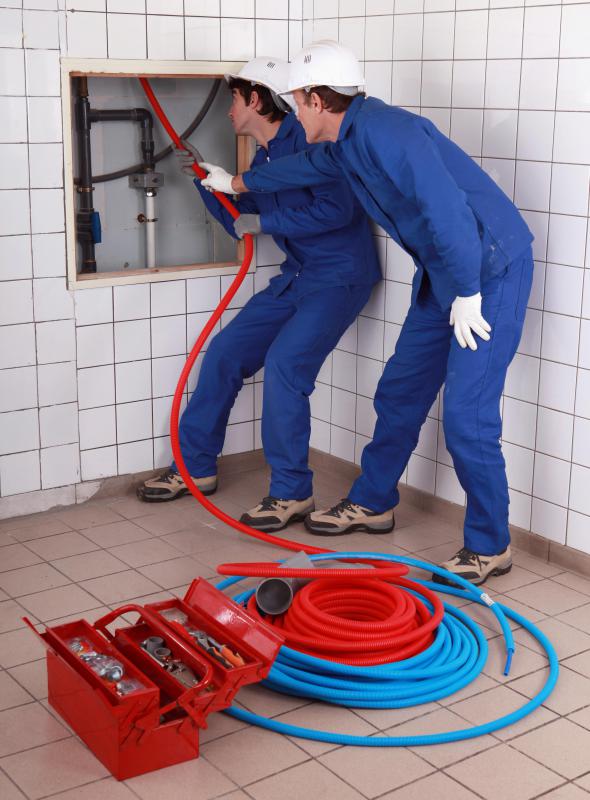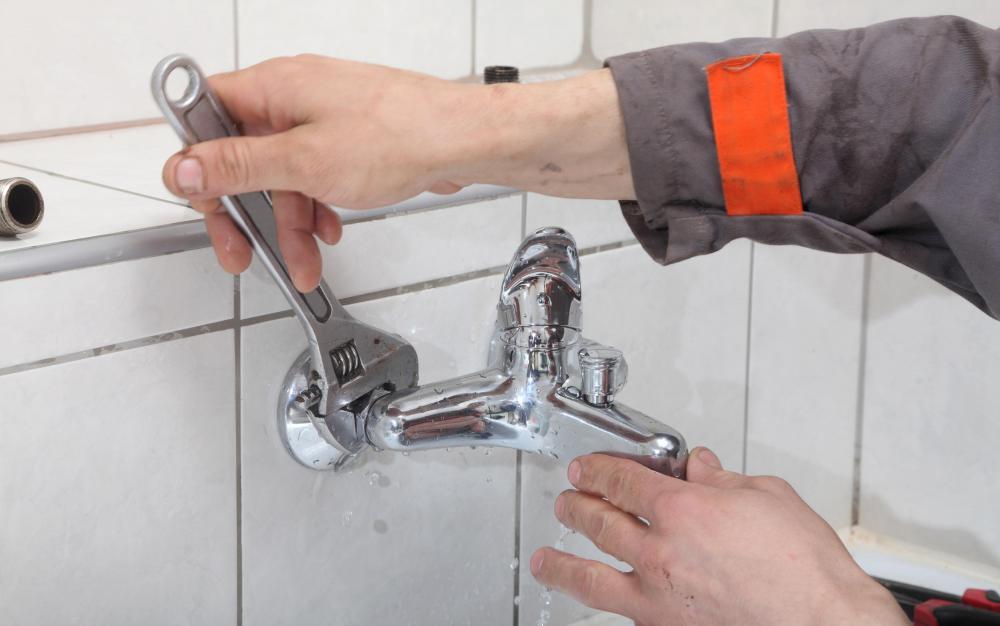At WiseGEEK, we're committed to delivering accurate, trustworthy information. Our expert-authored content is rigorously fact-checked and sourced from credible authorities. Discover how we uphold the highest standards in providing you with reliable knowledge.
How do I Become a Plumber?
There are two possible ways to become a plumber in the US: serve as an apprentice or go to trade school. Each state has its own rules surrounding the licensing of plumbers, with some requiring a license for all types of plumbers, and others for residential and commercial plumbers only. Plumbers can be self-employed or work for a plumbing service firm, local government or construction firms.
In order to become a plumbing apprentice you must be at least 16 years old, physically fit and have credits in high school math and English. Once you have met the educational requirement, contact your local plumbers' trade union and look for employers who want to hire an apprentice. Make sure that you will be working under a certified plumber.

Meet with potential employers and explain your level of experience and where you are in the apprentice program. Rules vary between states, but all apprentice programs require a specific number of hours of experience and the successful competition of courses in plumbing and business before you can become a plumber. On average, it takes six years of full-time work and part-time school to become a plumber this way.

In a trade school, there is a formal education program, combine with work experience terms to provide the required practical experience. A trade school program has higher educational requirements, but will allow you to be a certified plumber in two to three years.
The vast majority of plumbers qualify through attending a trade school, as the number of privately arranged apprentice opportunities is limited. If you are thinking of becoming a plumber, ask at the plumbing union local if you can "job shadow" a plumber to learn more about what they actually do. Remember that there are different types of plumbers and investigate these options in advance.

The licensing requirement for plumbers varies by state, with some states requiring all plumbers to be licensed, and others not requiring this. In order to become a plumber, read your states licensing requirements. Some states, like Minnesota, require all plumbers to successfully complete a plumbing licensing exam.
The written exam tests the applicants knowledge of the state plumbing code, basic plumbing knowledge, technical math and safety. These requirements are designed to protect consumers and improve the overall quality of plumbing contractors skills within the industry. Anyone with technical aptitude, manual dexterity, and interest can become a plumber.
Plumbing provides opportunities for a well-paid job that is in high demand. Once you have become a plumber, continue to expand your skills and experience in different areas of plumbing. Take courses in drafting, blueprint reading and business to enhance your skills.
AS FEATURED ON:
AS FEATURED ON:













Discussion Comments
Thanks, nice guide.
Post your comments